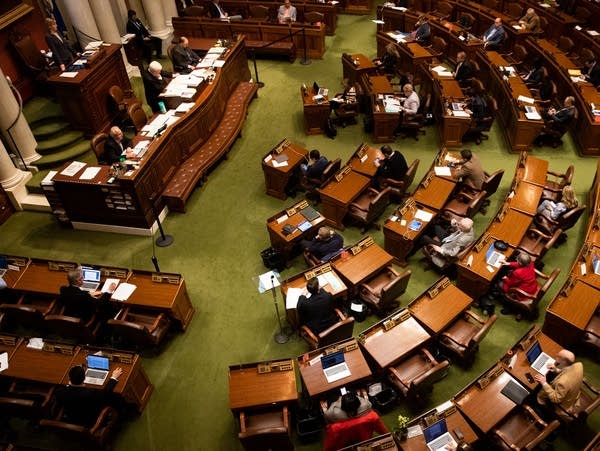Meaningless legislation? Not to top lawmakers

From legal marijuana to an ID requirement for voters, the Minnesota House and Senate have advanced several proposals this session that appear to have no chance of becoming law. Still, leaders say there are good reasons to debate them.
Evan Frost | MPR News
Go Deeper.
Create an account or log in to save stories.
Like this?
Thanks for liking this story! We have added it to a list of your favorite stories.


